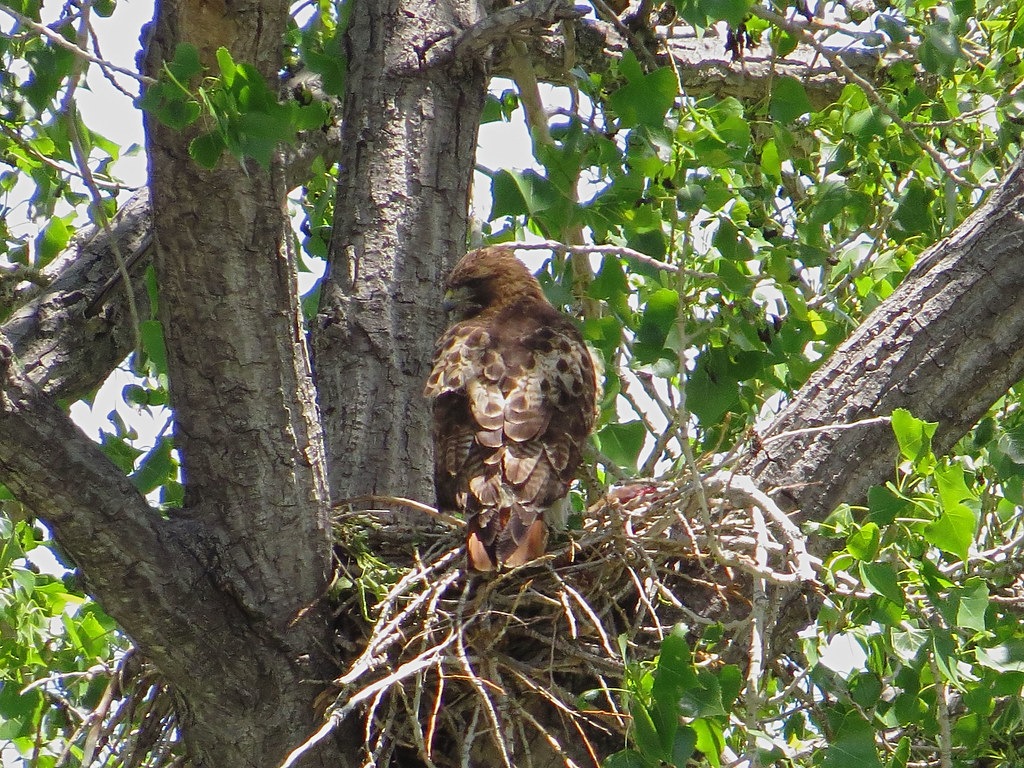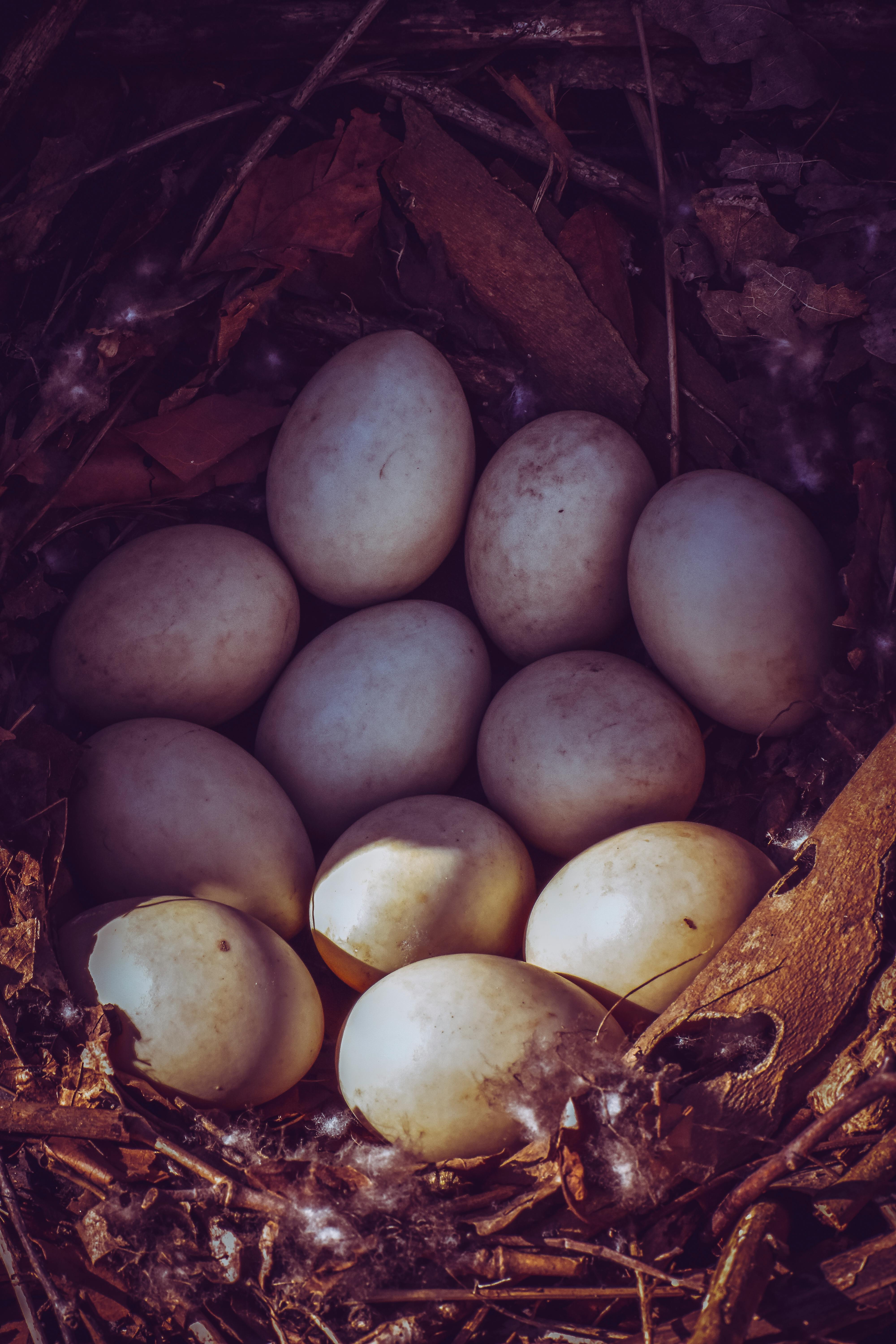Introduction

Bird eggs play a crucial role in the reproductive cycle of avian species, making them a fascinating aspect of avian biology. Understanding the hatching time of bird eggs is essential for the survival and propagation of bird species. In this article, we will explore the factors that influence the hatching time of bird eggs, provide examples of different bird species and their average hatching times, offer tips on preparing for and monitoring bird eggs, and discuss factors that can cause delays in the hatching process.
Factors That Influence Hatching Time
The hatching time of bird eggs can vary significantly depending on several factors. These factors include the species of bird, the number of eggs in the nest, environmental conditions such as temperature and humidity, and the bird’s evolutionary strategy.
Species of Bird
Different bird species have their own optimal duration for egg incubation. Factors such as the bird’s size, metabolic rate, and nesting habits contribute to this duration. For example, small songbirds like sparrows and finches generally have shorter incubation periods, typically ranging from 10 to 14 days. In contrast, larger birds like ducks and geese have longer incubation periods, lasting anywhere from 25 to 35 days or more.
Number of Eggs in the Nest
The number of eggs in a bird’s nest can impact the incubation period. Larger clutches of eggs require more time for all of them to hatch. This is because parent birds must distribute their time and energy among a greater number of eggs, ensuring each one receives sufficient warmth and care. Consequently, larger clutches tend to have longer incubation periods compared to smaller ones.
Temperature
Temperature plays a crucial role in egg development and hatching. Most bird eggs require a relatively narrow temperature range to develop properly. The optimal incubation temperature varies depending on the bird species. For many songbirds, it falls within the range of 37 to 38 degrees Celsius (99 to 100 degrees Fahrenheit). Deviations from this range can slow down or halt the development process.
Humidity
Humidity is another important factor influencing egg development. Maintaining suitable humidity levels within the nest ensures that the eggs do not dry out and that the developing embryos receive adequate moisture. However, excessive humidity can promote the growth of harmful microorganisms, posing risks to the eggs.
Understanding these factors is crucial for both bird caretakers and researchers. By considering the species of bird, the number of eggs in the nest, temperature, and humidity, we can better comprehend and appreciate the intricacies of avian reproduction.
Different Types of Birds and Their Average Egg Hatching Times

Birds display a fascinating array of egg hatching times, ranging from a few days to several weeks. Understanding these average hatching times provides valuable insights into the reproductive behavior and life cycle of different bird species. Let’s explore the hatching times of popular birds such as chickens, ducks, geese, parrots, pigeons, and doves.
Chickens
Chicken eggs typically incubate for around 21 days, although this duration may vary slightly depending on the breed. Factors like temperature and humidity levels in the incubation environment also influence hatching time.
Ducks
Duck eggs have an incubation period of 28 to 35 days, varying based on the species. Mallard ducks typically hatch their eggs in approximately 26 to 30 days, while Muscovy ducks require around 32 to 35 days. As with chickens, external factors like temperature and humidity affect the overall duration of incubation.
Geese
Geese eggs take around 28 to 35 days to hatch, although the specific incubation period varies by species. Like other birds, geese rely on favorable environmental conditions during incubation for successful hatching.
Parrots
Parrot eggs require an incubation period of about 24 to 30 days. However, different parrot species may have slightly longer or shorter incubation periods. Maintaining optimal temperature and humidity levels is crucial for healthy embryo development during incubation.
Pigeons
Pigeon eggs typically hatch after an incubation period of around 17 to 19 days. However, climate and individual pigeon behavior can influence this duration. Consistent temperatures and appropriate ventilation are essential for successful pigeon egg hatching.
Doves
Dove eggs have a relatively short incubation period of approximately 14 to 15 days. Compared to other bird species, doves are known for their quick hatching times. Providing a suitable incubation environment remains crucial for ensuring the healthy development of dove embryos.
It’s important to note that these times represent average hatching durations. However, variations can occur due to factors like environmental conditions, individual bird characteristics, and the overall health of the eggs. Understanding the typical hatching times for different bird species allows us to appreciate the intricacies of avian reproduction and contribute to their well-being during the critical incubation period.
How to Prepare for and Monitor Your Bird Eggs

Creating a suitable environment for bird eggs is crucial for their successful development and hatching. By providing the right conditions, you can optimize the chances of healthy chicks. Here are some tips to help you prepare for and monitor your bird eggs:
Creating a Suitable Environment
-
Nesting Area or Nest Box: Provide a secure nesting area or nest box that mimics the natural habitat of the specific bird species you are focusing on. Research the species’ needs to determine the appropriate nest design and materials. Ensure the nest is well-protected from predators and adverse weather conditions.
-
Temperature and Humidity: Maintain the appropriate temperature and humidity levels in the nesting area. Different bird species have varying temperature requirements, so research the specific needs of the birds you are caring for. Use a reliable thermometer and hygrometer to monitor and regulate these conditions accurately.
-
Ventilation: Ensure proper ventilation to prevent excess moisture buildup in the nest. Provide adequate airflow without subjecting the eggs to direct drafts.
Monitoring the Eggs
-
Minimize Disturbances: To promote healthy development, minimize disturbances and avoid excessive handling of the eggs. Limit checks to essential assessments of the egg condition.
-
Inspecting the Eggs: Regularly inspect the eggs for cracks, damage, or signs of abandonment. Gently examine them without rotating or shaking. If you notice any issues, consult avian experts or veterinarians for guidance.
-
Signs of Hatching: As the incubation period progresses, certain signs indicate that hatching is imminent. Look for increased activity of the adult birds near the nest, as they may spend more time around the eggs. You may also hear faint chirping or peeping sounds, indicating vocalization from inside the eggs. Additionally, small cracks or pips on the eggshell suggest that the chicks are starting to break through.
Assisting During the Hatching Process
-
Hands-Off Approach: It is generally recommended to avoid interfering with the hatching process unless there is clear indication of distress or difficulty for the chicks. Natural hatching is a complex and delicate process, and the chicks are equipped with innate abilities to emerge from their shells.
-
Seek Professional Help: If you observe prolonged or abnormal hatching processes, seek guidance from avian experts or veterinarians experienced in bird care. They can provide advice or assistance if necessary, ensuring the best outcome for both the chicks and the eggs.
By following these tips, you can create an optimal environment for your bird eggs and effectively monitor their progress. Remember, patience and a hands-off approach are often key to fostering successful hatching experiences.
Factors That Can Cause Delays in Hatching

Understanding the factors that can cause delays in the hatching process of bird eggs is crucial for bird enthusiasts and breeders. Let’s explore these factors and how they can hinder the timely emergence of chicks.
1. Poor Nutrition
Inadequate or imbalanced nutrition can significantly impact the development of bird embryos and delay hatching. When parent birds struggle to find sufficient food sources or fail to provide a well-rounded diet, the lack of essential nutrients like proteins, vitamins, and minerals can hinder the embryo’s growth.
2. Infections
Bacterial, viral, or fungal infections can be transmitted to bird eggs through contaminated nesting materials, parent birds, or the environment. These infections can harm the embryo and lead to developmental issues, resulting in delayed hatching. Maintaining a clean and hygienic nesting environment is crucial to minimize the risk of infections.
3. Malformation of the Egg
Eggs with deformities or abnormalities can cause delays in hatching. These issues can arise due to genetic mutations, environmental factors, or improper egg formation. Structural problems in eggs prevent the embryo from developing properly, resulting in delayed hatching. Ensuring healthy breeding birds and providing optimal conditions during egg formation can help minimize the occurrence of malformation.
4. Incubation Conditions
The incubation conditions provided during the nesting period significantly influence the hatching process. Temperature and humidity levels are critical factors for successful embryo development. Extreme temperature fluctuations or inadequate humidity control can negatively impact the embryo’s growth and delay hatching. Maintaining stable and appropriate incubation conditions is crucial for timely hatching.
5. Environmental Factors
Environmental conditions can also affect the hatching process. Extreme weather events, habitat disturbances, or exposure to toxins can disrupt the normal development of bird embryos, leading to delays in hatching. Minimizing environmental stressors and providing a stable and secure nesting environment can help mitigate potential delays caused by these factors.
By understanding and addressing these various factors, bird enthusiasts and breeders can increase the chances of successful hatching. Providing a well-balanced diet, ensuring a clean and hygienic nesting environment, minimizing environmental stressors, and maintaining optimal incubation conditions are crucial steps in promoting healthy development and timely hatching of bird eggs.
In the next section, we will explore different types of birds and their average egg hatching times, showcasing the fascinating diversity in hatching durations across species.
Conclusion

In this blog post, we embarked on a fascinating exploration of bird egg hatching. We delved into the factors that influence the incubation period, examined the hatching times of different bird species, provided insights on preparing for and monitoring bird eggs, and discussed the causes of hatching delays. Let’s recap the key points and draw insightful conclusions.
Recap of Key Points
-
Factors That Determine Hatching Time: Several factors affect the time it takes for bird eggs to hatch, including the species of bird, the number of eggs in the nest, temperature, and humidity. Each species has its own unique incubation period, shaped by these influential factors.
-
Diverse Hatching Times: We explored the hatching times of various bird species, such as chickens, ducks, geese, parrots, pigeons, and doves. From remarkably short incubation periods of just 10 days to lengthy ones spanning 80 days, birds have evolved diverse strategies to ensure the survival of their offspring.
-
Preparing for and Monitoring Bird Eggs: Creating an optimal environment, including a well-insulated nest with proper ventilation, is crucial for successful hatching. We emphasized the importance of observing the eggs from a safe distance, checking for signs of hatching, and refraining from unnecessary interference.
-
Factors Causing Hatching Delays: Poor nutrition, infections, or malformation of the egg can lead to delays in hatching. Understanding these factors helps bird enthusiasts and researchers identify potential issues and take appropriate measures to support successful hatching.
Insights and Conclusions
The study of bird egg incubation grants us remarkable insights into the complexity of avian reproduction and the adaptations birds have developed. Here are the key takeaways:
-
Adaptability and Diversity: Birds’ wide range of incubation periods reflects their remarkable adaptability to different environments and lifestyles. From precocial birds like chickens with short incubation periods to altricial species like parrots with longer ones, each strategy suits their specific needs.
-
Parental Care: Both male and female birds play crucial roles in maintaining the eggs’ temperature, protecting them from predators, and ensuring the well-being of the offspring. This parental investment is essential for successful hatching and chick survival.
-
Environmental Influences: Temperature, humidity, and food availability influence the incubation period. Birds have evolved to adapt to diverse habitats, resulting in variations in hatching times. These adaptations highlight the intricate relationship between birds and their environment.
-
Patience and Observation: Throughout the article, we emphasized the importance of patience and observation when studying bird eggs. By respecting natural processes and refraining from unnecessary disturbance, we allow birds to complete their incubation undisturbed, fostering successful hatching and the continuation of their species.
Final Thoughts
The journey from egg to hatchling is a remarkable process that showcases the wonders of avian life. Understanding the factors influencing hatching times, appreciating the diversity among bird species, and acknowledging the significance of parental care and environmental adaptations enriches our appreciation for these incredible creatures.
By sharing this knowledge, we aim to inspire curiosity and foster a deeper connection to the avian world. So, the next time you encounter a bird’s nest or witness the hatching of eggs, take a moment to marvel at the intricate process unfolding before your eyes. Remember, nature’s wonders are best observed with awe and respect.
Frequently Asked Questions
Frequently Asked Questions
1. How long does it take for bird eggs to hatch?
The hatching time of bird eggs varies depending on the species. Small songbirds like sparrows and finches typically hatch in 10 to 14 days, while larger birds like ducks and geese have incubation periods ranging from 25 to 35 days or more. It’s important to note that these are average durations, and variations can occur.
2. What factors influence the hatching time of bird eggs?
Several factors influence the hatching time of bird eggs, including the species of bird, the number of eggs in the nest, temperature, and humidity. Different bird species have their own optimal incubation periods, and larger clutches of eggs tend to have longer incubation periods. Maintaining suitable temperature and humidity levels is crucial for proper egg development.
3. How can I prepare for and monitor bird eggs?
To prepare for bird eggs, provide a secure nesting area or nest box that mimics the bird species’ natural habitat. Maintain appropriate temperature and humidity levels, ensuring proper ventilation. When monitoring the eggs, minimize disturbances and inspect them for cracks or signs of abandonment. Look for signs of hatching, such as increased activity of adult birds or small cracks on the eggshell.
4. What are the average hatching times for popular bird species?
The average hatching times for popular bird species are as follows:
– Chickens: Approximately 21 days
– Ducks: 28 to 35 days
– Geese: 28 to 35 days
– Parrots: 24 to 30 days
– Pigeons: 17 to 19 days
– Doves: 14 to 15 days
These durations can vary slightly depending on factors like temperature and humidity levels.
5. What can cause delays in the hatching process of bird eggs?

Delays in the hatching process can be caused by factors


Leave a Reply